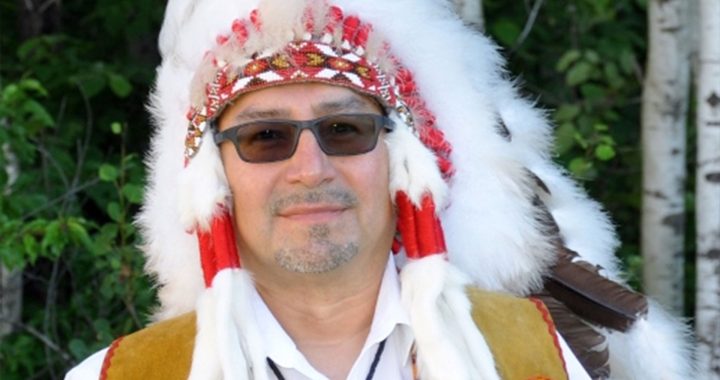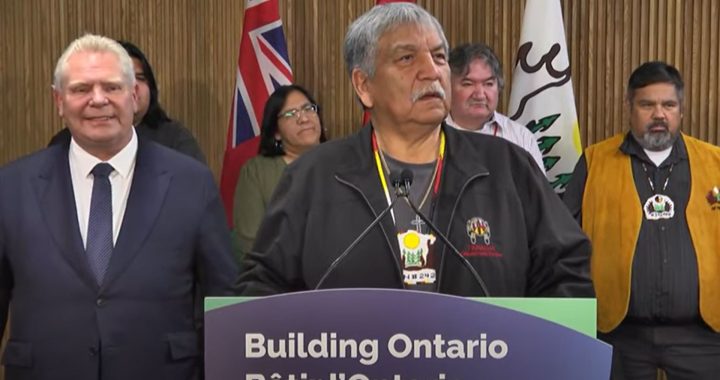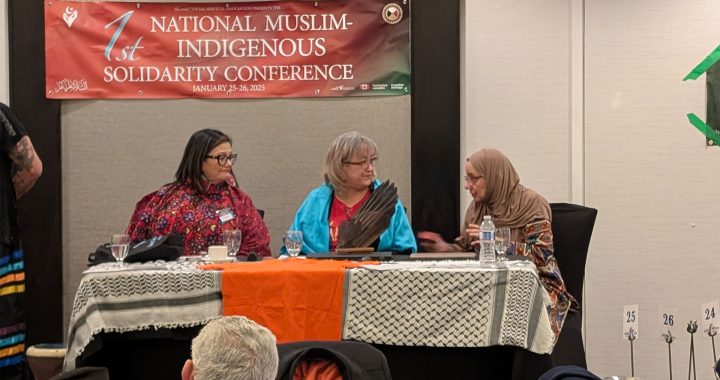Chiefs of the Quebec Algonquin Nations are calling on the federal government to stop a contaminated waste disposal project in Deep River, Ont., two hours west of Ottawa, located on unceded Algonquin territory.
Kebaowek First Nation Chief Lance Haymond said his community has filed for a judicial review.
“Last week, the decision by the Supreme Court in C-92 [First Nations, Inuit and Métis child welfare act] reminded everyone that First Nations have protected rights provided by the constitution, including the right to self-government, so it’s as a chief of a government, that I present myself here, to ask the current federal government, Nation to Nation to stop, to step in and stop the no-nonsense decision made by the CNSC,” said Haymond.
The Supreme Court ruling handed down on Feb. 9 affirmed First Nations’ self-government rights under the federal government’s Indigenous child welfare law. The ruling means First Nations laws supersede those of the federal government or province. The court ruling and law only applies to the child welfare system.
In January, the Canadian Nuclear Safety Commission, or CNSC, gave the green light for the development of what is called a near-surface disposal facility which would hold one million cubic metres of radioactive waste, a kilometre from the Ottawa River, or Kichi Sibi in Algonquin.
On Wednesday, leaders of the Algonquin Nation held a news conference on Parliament Hill. They were supported by the Bloc Quebecois and the Green Party leader Elizabeth May, who voiced their united concerns about the project.
“We have a situation again, the words are really clear, I’ll say them again, free prior and informed consent. The word prior is very important here, because as you’ve heard the indigenous peoples of the area were not consulted about the location of this sight,” May said.
Read More:
Algonquin leader pushes back after nuclear waste disposal site outside Ottawa approved
Haymond said Kichi Sibi holds immense cultural, spiritual and historical importance to the Anishinaabe people.
Following the press conference, the leaders were joined by supporters and allies for a rally by the centennial flame.
Sasha Huybregts came to show her support. She works with the Canadian Parks and Wilderness Society (CPAWS), an organization that “works to protect public lands in the National Capital Region and surrounding areas,” according to its website.
She said its important to put a halt on the project to find a safer solution.
“I think the best option would be the deep geological reservoir that they’ve done in other countries such as Finland and Sweden, where are you really, you bury the waste deep underground, away from water sources that are important for the indigenous communities and all the local communities,” she said.
Vice-Chief Sean McLaren of Temiskaming First Nation is pleased with the turnout but said more people should be concerned about the issue.
“This water’s going to affect everybody, not just us, but everybody and the seven generations down the line, so we would like to have maybe a little more support coming from our neighbors,” McLaren said.
If built, the Chalk River facility is expected to last 550 years. Chiefs say they’ll continue the fight to stop the development until they’ve been consulted and a better storage plan is in place.










